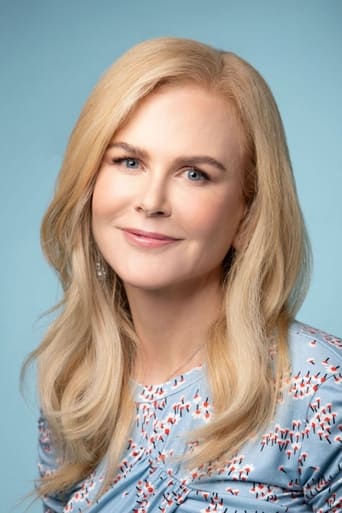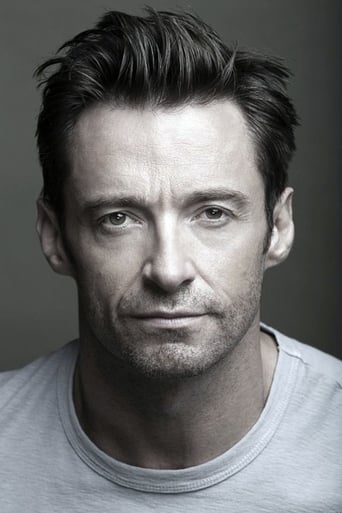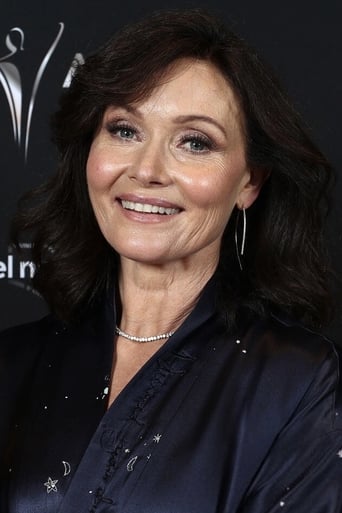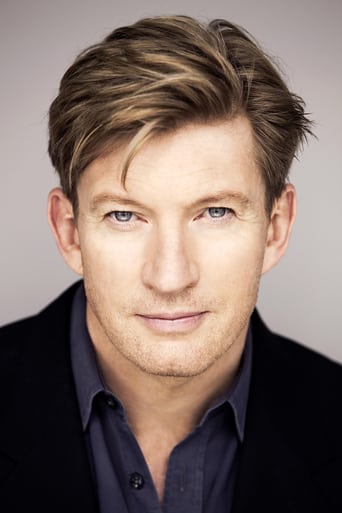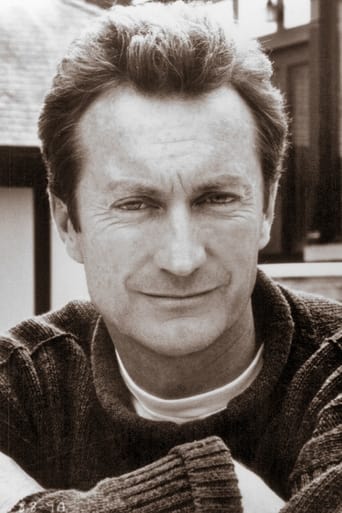Sexyloutak
Absolutely the worst movie.
Hayden Kane
There is, somehow, an interesting story here, as well as some good acting. There are also some good scenes
Mandeep Tyson
The acting in this movie is really good.
Kimball
Exactly the movie you think it is, but not the movie you want it to be.
doubleddoubled
Though to some it may start out as ridiculous, but some of us who used to go to every John Wayne movie may see of the style John Ford. It didn't start trying to impress the viewer with strong language and it made easier to take in. I thought the director did a good job.
rodlevis
Baz Luhrmann's epic film is gorgeous to look at with Australia's superstars Nicole & Jackman at their peak-best. Forget the knockers - this is a quality film, although flawed, it is hugely entertaining and emotionally connecting
eric262003
Sure the making of "Australia" may sound like a personal project to Aussie born director Baz Luhrmann, but once the smoke clears, the film has more bark than bite. In other words it may have the adulation of the critics (including an Oscar nomination), but all that hype surmounts to a big pile of nothing.Whether it be the appalling performances, the tedious ironies to the plot, and plenty of political correct references rubbed in our faces, "Australia" is a big, bloated epic drama that wants to give us something to reflect upon, but sadly comes up short. For a film that runs 2 hours and 45 minutes, it feels like it takes an eternity for it to be over. Luhrmann's efforts were to offer us an epic adventure, instead all we get is an overlong picture show. His shifts from intense drama to subtle comedy all gets intertwined together by a monotone insomnia induced narrative. From the first five minutes, "Australia" looks doomed from the starts, but instead of progressing, it wallows in there the whole time.The worst habit that Luhrmann does in this film is that he pushes his audience into thinking this film is charged in emotion, but in reality it's all very stoic in its delivery. He wants us to embrace us the warmth that this movie has along with composer David Hirschfelder as the swooning violins will grant us that feel-good comfort. When there's the feeling of victory, the horn section is at full blast. There's even some awkward camera work as we see a character choking even before the camera focuses on them. With all the long scenes, there is never any kind of connections. It's too whimsical and outrageous to be taken seriously as what's expected of us. By way of contrast, too serious to be regarded as a comedy and just plays it way to safe to garner any kind of magical credit to it.The fantasy side to this tale stems from an Aboriginal witch doctor who acts like a spiritual guide towards the principal characters located towards a nearby mountain. The most surreal element is that he's always omnipresent. No matter where the characters travel, he's never far behind. When in times of danger or precarious situation, he's around to cast an appropriate spell. When the cattle goes loose or the villains start shooting, surely the old shaman will make his presence known. It ends up becoming an enigma and soon this movies loses its touch.The action emanates from the Northern part of the land from down under in the early days of second world war. Nicole Kidman stars as Lady Sarah Ashley, a posh Englishwoman who has inherited a cattle ranch in the Australian outback. Kidman embraces all the essential clichés we have seen numerous times in many period piece films. She's self-absorbed, snotty, walks like a stick stuffed up her ass and has little care for anything that's regarded lower class. She's a poster child for satire and to have this character as the leading character makes me question what Kidman was thinking when she agreed to this role.Although this is where she called home, Kidman never looked so lost. And the worse case scenario is that Luhrmann just sit back and lets her be that way. Normally, Kidman is a bombshell in the films she's in, but here she's quite unattractive, even if she's blessed with royalty. Whether it be her appalling demeanour, her unappealing hairstyle or her disheveled clothing. Why did Luhrmann leaving her in this pile of spunk? Why couldn't he help her fix up her character a bit.What makes it more puzzling is that he knew he was pairing her with fellow Aussie in Hugh Jackman who never looked better as an Aussie cowboy named Dover. Sure the actresses get a feeling of awe from the audience, but Jackman is the rare breed of male performers getting the awe from the crowd. His looks, appeal and charisma likely leaves his fans breathless, like the second coming of Jesus, if such an event should happen.The principal action scenes of "Australia" is Sarah in her new role as cattle owner struggles to move the herd across the country, but can't do it. She hires the experienced rancher Dover who hates her at first because that's how all relationships in movies start off. Joining them on the escapade is a mixed-Aboriginal boy named Nullah (Brandon Walters) who serves as our narrator, even though he doesn't have the knack for it. Or these are the voices from the witch doctor who happens to be his grandfather.Though I may be ranting a bit here, it's not a complete abomination. The technical aspects are quite impressive. The scenery is very picturesque. The visionary aspect is the best quality of the film. Luhrmann has the idea of creating "Australia" as a vibrant, colourful, frolicking country, but all that visual beauty wears out its welcome. The Aboriginals are looked upon as noble founders of this land and are not looked at as savages like many films before this. However, they're portrayed way too sympathetic almost to the point of them being treated like victims. And sure Luhrmann can give us the physical beauty of Australia, but never do we feel the beauty of this country.In the end "Australia" is a very sad film. The artistic merit, the performances, and the story all had potential to be really good, but in the end it leads us into feeling cheated and unfulfilled and uninspired.
Robert J. Maxwell
A cowboy movie in almost all respects except scenery and lingo. (How do you say "vaquero" in the language of the Yir Yuront?) Unlike most cowboy movies it's hard to assess because it's really two movies sitting uneasily side by side. The first movie is DEFINITELY cowboy move. It has a lot of cows. Fifteen hundred head, reckons the expert drover, handsome, robust, dusty Hugh Jackman. A "drover" in 1940 Australia is just a plain old cowboy. He don't fancy sittin' in the big house and foolin' around with figures and such. He likes to be out there where a man can be independent and can breath fresh clean air -- if you don't count cow flops.Nicole Kidman, thoroughly unglamorized, is the new owner of Faraway Downs, a remote ranch that has entered a barren stretch,. She arrives fresh from England, all proper and prim and prejudiced. The American West had its Indians. The outback has its aborigines. She is gradually assimilated into the ways of the Antipodes and when her cheating foreman deserts her with all his hands, she gathers the Blackfellas together with Hugh Jackman and a philosophical drunk, the bags under whose eyes would inflate during a collision, and drives those 1500 head all the way up to Darwin, beating out the mean guy who runs the cattle business hereabouts, King Carney. King Carney is Bryan Brown, known to many through the "F/X" movies, now playing a grizzled monarch of all he surveys. Frankly, I missed Chips Rafferty, a whole generation's go-to Australian sidekick and guide.The score ranges from period renditions of Jerry Gary's famous arrangement of Cole Porter's "Begin the Beguine" to Bach's "Sheep May Safely Graze." The landscape is epic. I love Australia and Aussies. The men outside the cities are into beer and sports. That's enough for me. But nothing else is epic in any sense. The writers have missed no opportunity for heroism and sentimentality in their most uncooked form. That drunken wise fool? Any experienced viewer has him pegged as toast, if not from his very introduction then most certainly after he befriends the cute little half-caste boy with the big black eyes and the belief in magic. The first movie ends more or less happily, a few deaths along the way not counting for very much, when Faraway Downs' functionality is restored, and Jackman and Kidman wind up in each others' arms and the cute little half-caste sits playing a harmonica in the moonlight.Then the second movie begins and it's darker in tone. Jackman, rather too quickly, is overcome by a yearning for the wide-open spaces again and takes off working on a six-month cattle drive for some other ranch. Jackman once had a wife, an aborigine, who was killed because she was an aborigine. Now we are introduced to her brother, Jackman's brother-in-law, who bravely puts into words the feelings that the self-contained, manly Jackson can not. The brother-in-law is toast. I'll skip the plot of the second movie except to say that everyone but Jackman is either dead or thought to be dead, until they reappear from bushes, all smiles.It's a long movie, as I said, long enough for two movies actually. It's full of colorful action and stereotypical characters. Once in a while it's good to relax and let an unchallenging and thoroughly familiar narrative run across the screen, even if it leaves behind nothing much more than insubstantial whirls of desert dust that soon settle back to earth and reveal the distant jagged hills and desiccated mud cracks of spaces totally devoid of life.




